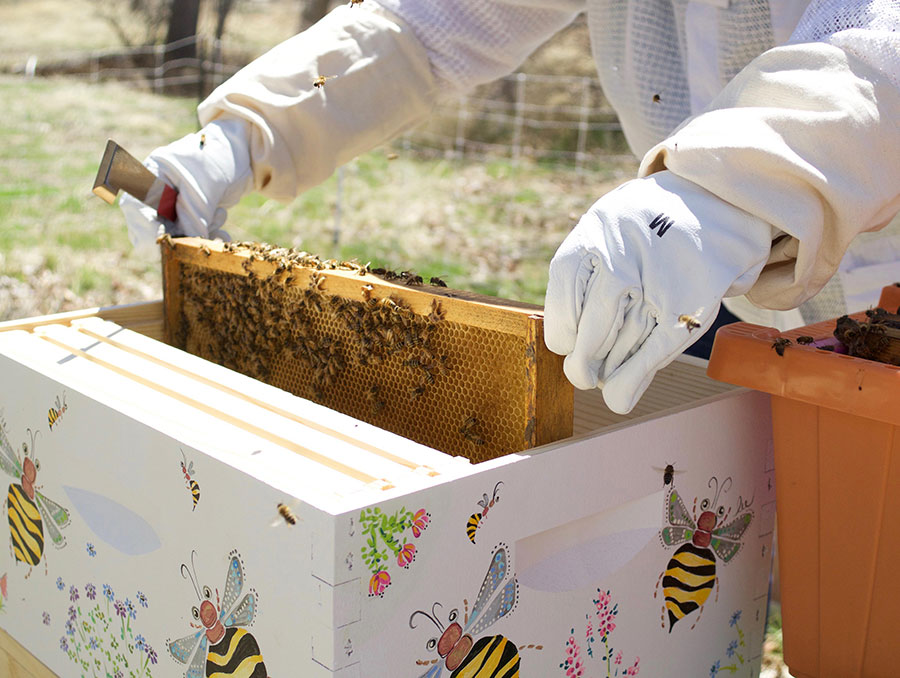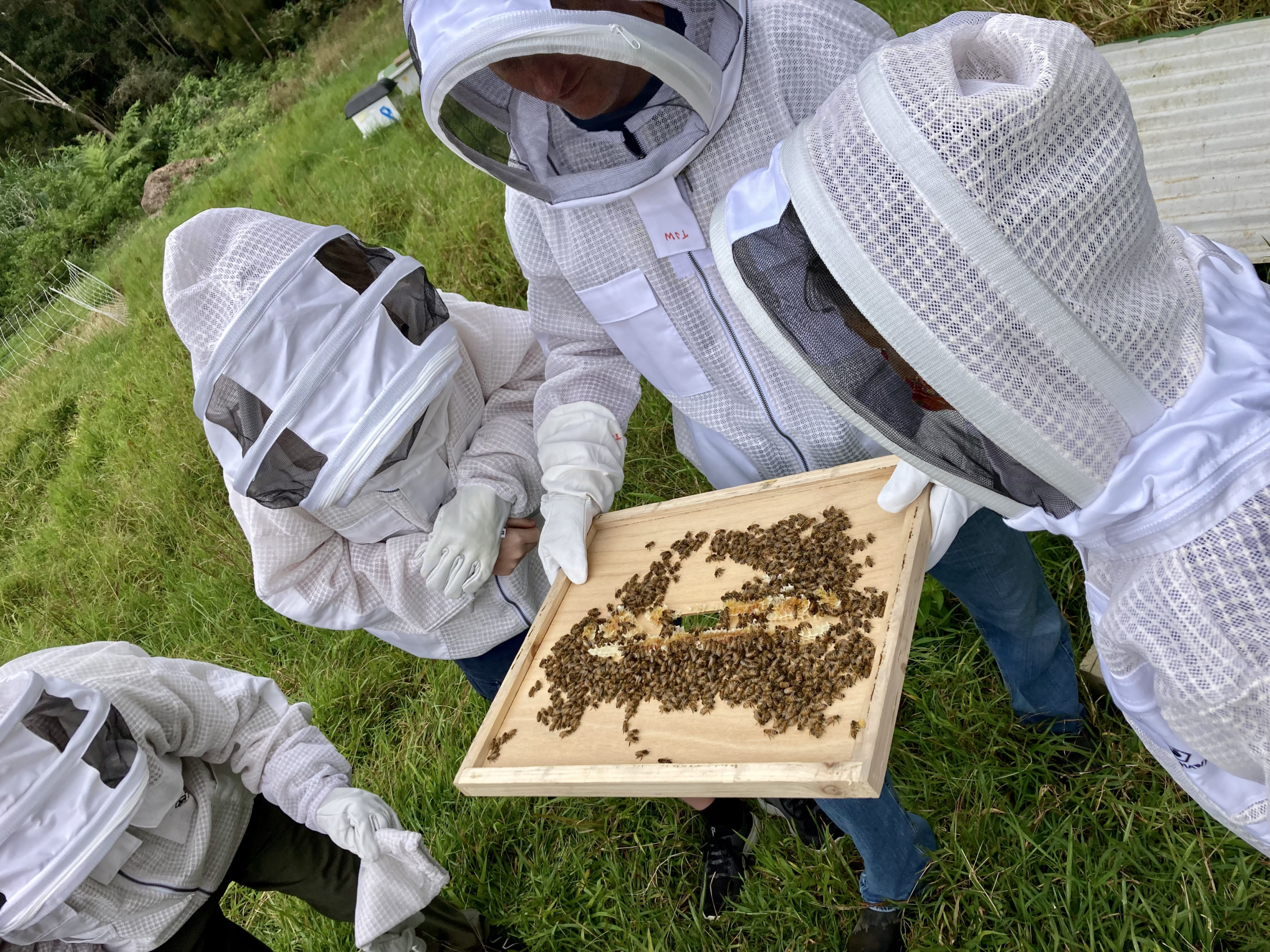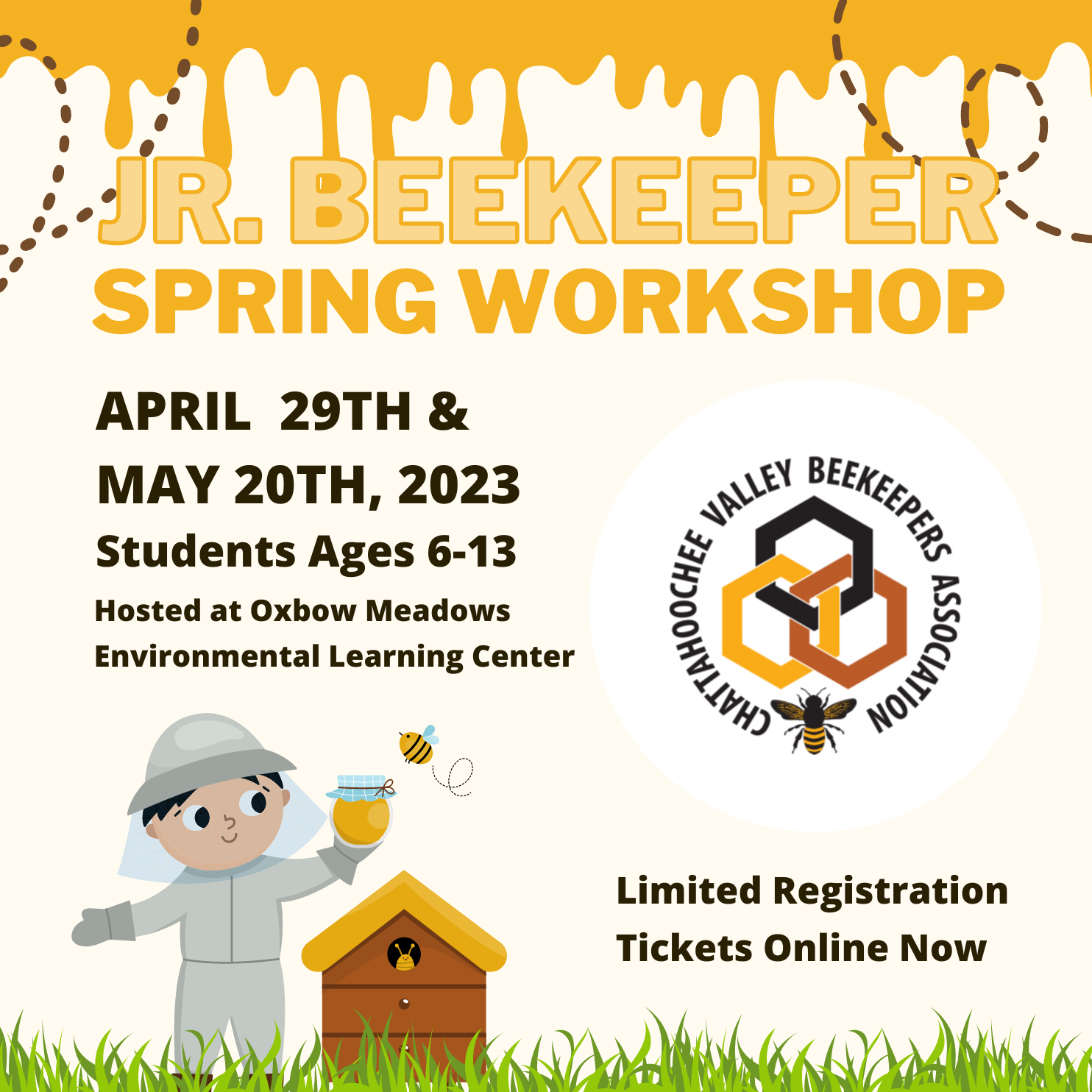Contents
- I. Introduction to Beekeeping Workshops and Training
- II. Importance of Beekeeping Education
- III. Finding the Right Beekeeping Workshop
- IV. Benefits of Attending Beekeeping Workshops and Training Programs
- V. Different Types of Beekeeping Workshops Available
- VI. Practical Skills Taught in Beekeeping Training Sessions
- VII. Understanding the Role of Beekeeping Associations and Organizations
- VIII. Frequently Asked Questions about Beekeeping Workshops and Training
- 1. What are the benefits of attending beekeeping workshops?
- 2. Are these workshops suitable for beginners?
- 3. How long do these workshops usually last?
- 4. Will I receive any certification after completing a workshop?
- 5. Can I learn practical skills during these workshops?
- 6. Are there any age restrictions for attending these workshops?
- 7. Can I attend a beekeeping workshop even if I don’t plan on becoming a commercial beekeeper?
- 8. How much do these workshops usually cost?
I. Introduction to Beekeeping Workshops and Training

Beekeeping is an ancient practice that has gained immense popularity in recent years due to its numerous benefits for both individuals and the environment. As more people become interested in beekeeping, the demand for workshops and training programs has also increased significantly. These workshops provide aspiring beekeepers with the knowledge, skills, and tools needed to start their own apiaries successfully.
One of the primary aims of beekeeping workshops is to educate participants about the importance of bees in our ecosystem. Bees play a vital role in pollination, which directly impacts food production by ensuring healthy crop yields. Through these workshops, participants gain a deeper understanding of how bees contribute to biodiversity and sustainability.
The Benefits of Beekeeping Workshops
Attending a beekeeping workshop offers numerous advantages for both beginners and experienced beekeepers alike:
1. Comprehensive Learning: Workshops provide a structured learning experience where participants can acquire comprehensive knowledge about all aspects of beekeeping – from hive construction and management techniques to honey extraction methods.
2. Hands-on Experience: Many workshops offer practical sessions where attendees can work directly with hives under expert guidance. This hands-on experience helps them develop essential skills required for successful beekeeping.
3. Networking Opportunities: Beekeeping workshops often bring together like-minded individuals passionate about sustainable practices and environmental conservation. These events serve as excellent networking opportunities where participants can connect with experienced professionals or fellow enthusiasts.
The Role of Certified Instructors
To ensure high-quality education, most reputable beekeeping workshops are conducted by certified instructors who possess extensive knowledge and practical experience in this field.
Instructors guide participants through various topics such as hive management strategies, disease prevention, and honey production techniques. They offer personalized guidance, addressing individual concerns and providing solutions for specific challenges that may arise during beekeeping.
Moreover, certified instructors are well-versed in the latest advancements in beekeeping practices and can educate participants about emerging trends or innovative methods that can enhance their beekeeping journey.
Choosing the Right Workshop
When selecting a beekeeping workshop, it is essential to consider certain factors:
1. Reputation: Research the reputation of the workshop provider by reading reviews or seeking recommendations from experienced beekeepers.
2. Curriculum: Evaluate the workshop’s curriculum to ensure it covers all essential aspects of beekeeping that align with your goals and interests.
3. Duration and Location: Consider the duration of the workshop and its location to determine if it suits your schedule and accessibility preferences.
II. Importance of Beekeeping Education

Beekeeping education plays a crucial role in the success and sustainability of beekeepers, as well as the overall health of honeybee populations. By equipping individuals with the necessary knowledge and skills, beekeeping education helps promote responsible beekeeping practices and fosters a deeper understanding of these remarkable creatures.
1. Enhancing Beekeeper Confidence
Beekeeping can be a complex endeavor, requiring careful management and an understanding of various factors that impact hive health. Through education, aspiring beekeepers gain confidence in their abilities to handle bees safely and effectively manage hives. They learn how to identify potential issues such as diseases or pests early on and take appropriate measures to mitigate them.
2. Promoting Sustainable Practices
Beekeeping education emphasizes sustainable practices that prioritize the well-being of honeybees and their ecosystems. By learning about organic methods, integrated pest management (IPM), pollinator-friendly planting techniques, and other sustainable approaches, beekeepers can minimize their impact on the environment while maximizing hive productivity.
3. Supporting Colony Health
A knowledgeable beekeeper is better equipped to maintain colony health by recognizing signs of stress or disease in their bees promptly. Education provides insights into common challenges faced by honeybees such as Varroa mites or colony collapse disorder (CCD). With this knowledge, beekeepers can implement preventive measures, conduct proper monitoring, and take swift action when necessary.
4. Ensuring Honey Quality
Beekeeping education also includes guidance on harvesting honey while ensuring its quality remains uncompromised. Beekeepers learn about proper handling techniques to prevent contamination or spoilage during extraction and packaging processes.
5. Creating Awareness about Bees’ Importance
Education on beekeeping helps raise awareness about the vital role honeybees play in pollination and ecosystem health. By educating the public, beekeepers contribute to a greater understanding of the importance of preserving and protecting these invaluable creatures.
6. Exchange of Knowledge and Best Practices
Beekeeping workshops and training provide opportunities for beekeepers to exchange knowledge, experiences, and best practices. Through interactions with fellow enthusiasts, they can learn about innovative techniques or local insights that can further enhance their skills as beekeepers.
In conclusion, beekeeping education is crucial for aspiring and experienced beekeepers alike. It empowers individuals with the knowledge necessary to uphold responsible practices while supporting honeybee health and overall ecosystem balance. With a deeper understanding of bees’ needs, challenges, and benefits, educated beekeepers contribute significantly to the preservation of these remarkable creatures for generations to come.
III. Finding the Right Beekeeping Workshop

So you’ve decided to delve into the fascinating world of beekeeping and now you’re on the hunt for a suitable workshop to kickstart your journey. With so many options available, it can be overwhelming to choose the right one. But fear not! We’re here to guide you through the process of finding the perfect beekeeping workshop.
1. Research and Reviews
The first step is to conduct thorough research on different workshops in your area or those offered online. Take advantage of search engines, social media platforms, and beekeeping forums where enthusiasts share their experiences and recommendations. Look for reviews from past participants as they will provide insights into the quality of instruction, course content, and overall satisfaction.
2. Expertise and Accreditation
When choosing a workshop, prioritize those conducted by experienced beekeepers who have a proven track record in successful apiary management. Check if they hold any certifications or accreditations that validate their expertise in this field. A reputable workshop should have instructors who are knowledgeable about various aspects of beekeeping such as hive maintenance, honey extraction techniques, pest control measures, and colony health management.
3. Curriculum
Evaluate the curriculum offered by different workshops to ensure it aligns with your learning goals and requirements. Does it cover all essential topics like hive setup, equipment selection, seasonal management practices? Look for comprehensive programs that provide hands-on training opportunities alongside theoretical instruction.
4. Practical Training Opportunities
Beekeeping is a skill that requires practical experience along with theoretical knowledge gained from workshops or courses.The ideal workshop would offer hands-on training sessions where participants can handle bees under expert guidance.It’s crucial to gain confidence in handling bees safely before starting your own apiary.
5. Class Size and Duration
Consider the class size and duration of the workshop. Smaller groups often allow for more personalized attention, ensuring that you receive adequate guidance throughout the training process. Additionally, workshops that span multiple days or weeks offer a more in-depth learning experience compared to shorter sessions.
6. Cost and Location
Affordability is an important factor to consider when selecting a beekeeping workshop. Compare prices of various options while keeping in mind that higher costs may indicate better quality instruction or additional resources provided.Opt for a workshop located within a reasonable distance from your home; this will minimize travel expenses and make it easier to attend regular sessions.
By following these guidelines, you’ll be able to find the ideal beekeeping workshop that suits your needs perfectly.Ensure it provides not only theoretical knowledge but also hands-on experience, as this combination will set you on the path to becoming a successful beekeeper!
IV. Benefits of Attending Beekeeping Workshops and Training Programs

Participating in beekeeping workshops and training programs can offer numerous advantages for both novice and experienced beekeepers. These educational opportunities provide valuable knowledge, practical skills, networking opportunities, and support systems that can significantly enhance the success of beekeeping ventures. Below are some key benefits of attending these workshops and training programs:
1. Expand Your Knowledge
Beekeeping workshops and training programs offer a wealth of information on various aspects of beekeeping. You will learn about hive management techniques, honeybee behavior, disease prevention strategies, honey production methods, pollination practices, and more. By expanding your knowledge base through these educational platforms, you can become a more competent beekeeper.
2. Hands-on Learning
Many workshops incorporate hands-on activities to reinforce theoretical concepts taught in the classroom setting. You will have the opportunity to practice essential skills such as handling bees safely, inspecting hives effectively, identifying common pests or diseases in colonies accurately, extracting honey efficiently, or creating new colonies through splitting or queen rearing methods.
3. Networking Opportunities
Beekeeping workshops bring together individuals with similar interests from different backgrounds and experiences within the industry. This provides an excellent opportunity to network with fellow beekeepers at various skill levels who may share valuable insights or tips for success in maintaining healthy colonies or improving honey production.
4. Access to Expert Advice
Beekeeping experts often lead these workshops and training programs; they have extensive experience working with bees in diverse environments and can provide expert advice tailored to specific challenges you may face as a beekeeper.
5. Support System
The connections made during these events often result in the creation of support networks. Beekeepers can share experiences, troubleshoot problems, and exchange information or resources with others who understand the unique challenges of beekeeping.
6. Stay Updated with Industry Trends
Beekeeping workshops and training programs are an excellent way to stay updated with the latest advancements and trends in the field. You can learn about new technologies, innovative hive designs, sustainable practices, or emerging research findings that may improve your beekeeping practices.
7. Boost Confidence
Gaining knowledge and hands-on experience through these educational opportunities can boost your confidence as a beekeeper. You will feel more equipped to handle various situations that arise throughout the year, whether it’s managing swarms or preventing disease outbreaks.
In conclusion, attending beekeeping workshops and training programs offers numerous benefits for both novice and experienced beekeepers. These educational platforms provide opportunities to expand knowledge, gain practical skills through hands-on learning experiences, network with other like-minded individuals, access expert advice from industry professionals, build support systems within the community of beekeepers, stay updated with industry trends, and boost confidence levels in managing successful honeybee colonies.
V. Different Types of Beekeeping Workshops Available
When it comes to beekeeping workshops, there are numerous options available for both beginners and experienced beekeepers. These workshops aim to provide valuable knowledge and practical skills that can help individuals become successful in their beekeeping endeavors. Here are some of the different types of beekeeping workshops you can consider:
1. Introduction to Beekeeping Workshop
This workshop is designed for those who are new to the world of beekeeping. It covers the basics, including an overview of honeybee biology, hive management techniques, equipment needed, and safety protocols.
2. Advanced Beekeeping Techniques Workshop
If you already have some experience in beekeeping and want to take your skills to the next level, an advanced workshop is a great option. This workshop focuses on more complex topics such as queen rearing, swarm control methods, disease prevention strategies, and honey harvesting techniques.
3. Natural Beekeeping Workshop
Natural or organic beekeeping has gained popularity in recent years due to its emphasis on sustainable practices and chemical-free approaches. In this workshop, participants learn about alternative hive designs, natural pest management methods, organic honey production techniques, and how to support overall hive health using natural remedies.
4. Business of Beekeeping Workshop
If you’re interested in turning your passion for bees into a profitable venture or expanding your existing business as a beekeeper, this workshop will provide valuable insights into the entrepreneurial side of beekeeping. Topics covered may include marketing strategies for selling honey products or other hive-related merchandise and tips on managing finances within the industry.
5. Queen Rearing Workshop
In this specialized workshop focused solely on queen rearing techniques; participants learn how to propagate queen bees, which are crucial for maintaining healthy and productive colonies. The workshop covers methods such as grafting, cell builders, and instrumental insemination.
These are just a few examples of the different types of beekeeping workshops available. It’s important to choose a workshop that aligns with your current skill level and specific interests or goals in beekeeping. Attending these workshops can provide you with valuable knowledge, hands-on experience, and networking opportunities within the beekeeping community.
VI. Practical Skills Taught in Beekeeping Training Sessions
Beekeeping training sessions provide aspiring beekeepers with a wealth of practical skills necessary for successful apiary management. These hands-on workshops offer participants the opportunity to learn and practice various techniques that are essential for maintaining healthy and productive beehives. From hive inspections to honey extraction, here are some of the key skills taught in beekeeping training sessions:
Hive Inspections
One crucial skill taught in beekeeping training is conducting thorough hive inspections. Participants learn how to carefully examine each frame, checking for signs of disease, pests, or irregularities in brood pattern. They also learn how to identify the queen bee and assess her overall health and productivity.
Honey Extraction
Another important aspect covered in these training sessions is honey extraction. Beekeepers are taught the proper methods of removing honeycombs from hives without causing harm to bees or compromising hive structure. They also learn how to extract honey using equipment such as extractors, filters, and storage containers.
Swarms Management
Beekeepers need to be prepared for swarming events, which occur when a large group of bees leaves an overcrowded colony to establish a new one elsewhere. In training sessions, participants gain knowledge about swarm prevention techniques such as providing sufficient space within hives or creating artificial swarms.
Pest Control
Dealing with pests is an ongoing challenge in beekeeping. Therefore, trainees receive guidance on identifying common pests like varroa mites and small hive beetles and implementing effective control measures such as integrated pest management strategies or natural treatments.
Feeding Techniques
In certain situations where nectar flow may be limited or during the winter season, beekeepers may need to supplement their bees’ diet with supplemental feeding. Training sessions cover various feeding techniques, including sugar syrup preparation and pollen patty placement.
Splitting Colonies
Beekeeping training also includes instruction on splitting colonies. This technique involves dividing a strong colony into two or more separate hives, allowing beekeepers to increase their apiary size or prevent swarming. Participants learn when and how to perform splits, ensuring the successful establishment of new colonies.
Hive Construction and Maintenance
Participants gain knowledge about hive construction and maintenance during these training sessions. They learn how to assemble hive components correctly, paint and preserve wooden structures for longevity, and replace old or damaged parts that may compromise hive integrity.
Beekeeping workshops provide aspiring beekeepers with practical skills necessary for successful apiary management. By equipping participants with these essential techniques through hands-on training sessions, they set them up for a rewarding journey in the world of beekeeping.
VII. Understanding the Role of Beekeeping Associations and Organizations
Beekeeping associations and organizations play a vital role in supporting beekeepers, promoting sustainable practices, and advancing the beekeeping industry as a whole. These groups serve as valuable resources for both novice and experienced beekeepers, offering education, networking opportunities, advocacy efforts, and various other benefits.
1. Knowledge Sharing and Education
Beekeeping associations organize workshops, seminars, conferences, and training programs to enhance the knowledge of their members. These events cover a wide range of topics such as hive management techniques, disease prevention strategies, honey production methods, pollination services awareness campaigns.
2. Networking Opportunities
Belonging to a beekeeping association provides access to a network of fellow beekeepers who can offer guidance and support. Associations often facilitate mentorship programs where experienced beekeepers mentor newcomers in their journey towards successful apiary management.
3. Advocacy for Beekeepers
Beekeeping associations advocate for the best interests of their members at local government levels by influencing policies that impact the industry directly or indirectly. They work towards ensuring favorable regulations on issues like land use planning or pesticide control measures that may affect honeybee populations negatively.
4. Research Funding
Sometimes associations collaborate with universities or research institutions to fund scientific studies related to bees’ health or advancements in apiculture technology development that can benefit both commercial apiarists as well as hobbyist beekeepers alike.
5. Marketing Support
Beekeeping organizations often help promote local honey products through marketing initiatives such as organizing farmers’ markets stalls dedicated solely to honey sales or participating in food festivals where they educate visitors about bees’ importance while showcasing different types of honey.
Beekeeping associations and organizations are essential in fostering collaboration, knowledge sharing, and sustainability within the beekeeping community. Their efforts contribute to the growth and development of the industry while ensuring the well-being of bees and their crucial role in pollination.
VIII. Frequently Asked Questions about Beekeeping Workshops and Training
1. What are the benefits of attending beekeeping workshops?
Attending beekeeping workshops provides numerous benefits for both beginners and experienced beekeepers. These workshops offer valuable knowledge, practical skills, and hands-on experience to help you understand the fundamentals of beekeeping, hive maintenance, honey production, pest management, and more. Additionally, these workshops provide a platform for networking with fellow enthusiasts and experts in the field.
2. Are these workshops suitable for beginners?
Absolutely! Beekeeping workshops are designed to cater to individuals at all skill levels. Beginners can gain a solid foundation by learning about hive setup, basic equipment needed, colony management techniques, and safety precautions. The instructors typically provide step-by-step guidance to ensure that beginners feel comfortable starting their own beekeeping journey.
3. How long do these workshops usually last?
The duration of beekeeping workshops can vary depending on the organizer or institution offering them. Some may span a single day or weekend workshop covering essential topics while others may extend over multiple weeks or months with in-depth training sessions on various aspects of beekeeping.
4. Will I receive any certification after completing a workshop?
Certification availability depends on the specific workshop you attend as well as its objectives and structure.
Some institutions offer certificates upon successful completion of their programs which can be beneficial when seeking employment opportunities or establishing yourself as a professional in the industry.
It is advisable to inquire about certification options before enrolling in any particular workshop if that is an important consideration for you.
5. Can I learn practical skills during these workshops?
Absolutely! Practical hands-on learning forms an integral part of most beekeeping workshops. You will have the opportunity to observe and handle beehives, learn proper hive inspection techniques, identify common pests and diseases, practice honey extraction methods, and more. These practical sessions are crucial for gaining confidence and developing the necessary skills to manage your own hives effectively.
6. Are there any age restrictions for attending these workshops?
Age restrictions may vary depending on the organizer or institution conducting the workshop.
While some workshops may have a minimum age requirement due to safety concerns (usually around 16 years old), others may be open to participants of all ages.
It is advisable to check with the organizers beforehand if you are unsure about age restrictions.
7. Can I attend a beekeeping workshop even if I don’t plan on becoming a commercial beekeeper?
Absolutely! Beekeeping workshops cater not only to those who aspire to become commercial beekeepers but also hobbyists or individuals interested in learning more about bees and sustainable practices.
Even if you don’t intend to keep bees on a larger scale, these workshops can provide valuable knowledge that can be applied in smaller-scale backyard setups or community gardens.
8. How much do these workshops usually cost?
The cost of attending beekeeping workshops varies depending on factors such as location, duration, level of expertise covered, materials provided, and instructor qualifications.
On average, one-day introductory workshops may range from $50-$150 per person while comprehensive multi-week courses can range from $300-$1000+ per person.
It is advisable to research different options available in your area and consider what fits within your budget before making a decision.

Andrew Boyer is an accomplished individual with a deep-rooted passion for bees and their conservation. Born and raised in a small town in Oregon, Andrew developed an early fascination with nature and the environment. He pursued his education at the prestigious University of Oregon, where he obtained a Bachelor’s degree in Environmental Science with a specialization in Entomology. During his time at university, Andrew conducted extensive research on the behavior and ecological impact of bees, earning him recognition from his peers and professors. His dedication to the field led him to internships at local beekeeping associations, where he honed his skills in hive management and honey production. Andrew’s expertise in beekeeping and his commitment to environmental sustainability make him a valuable asset in the conservation of these vital pollinators.
